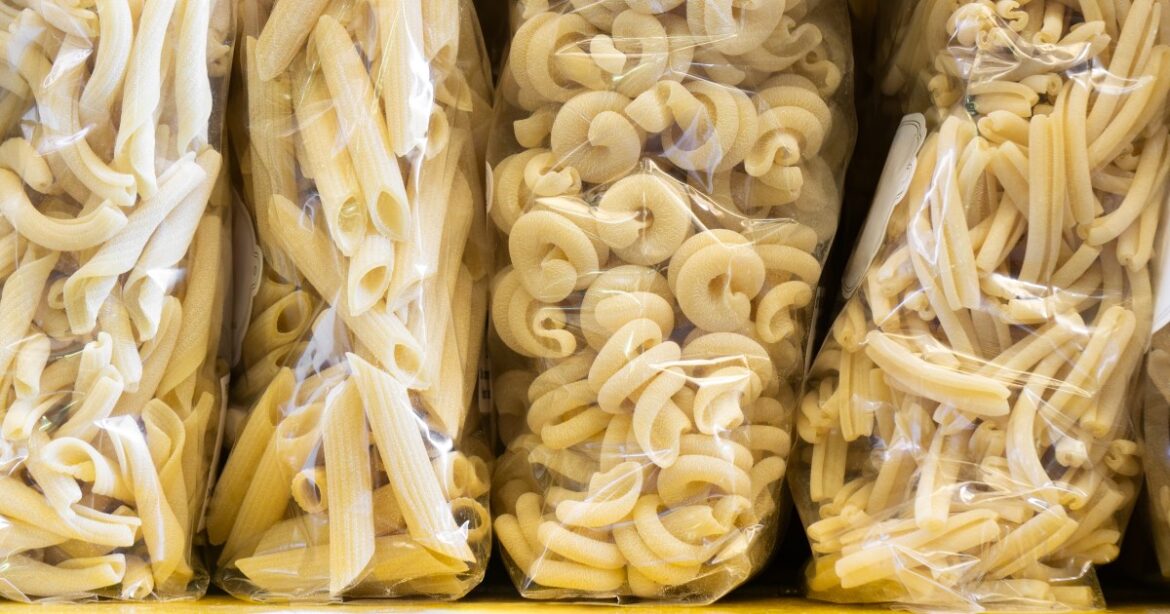Pasta lovers might have to find an alternative for their favorite dishes as the implementation of new tariffs could cause Italian pastas to be removed from grocery stores.
In September, the U.S. Commerce Department announced its findings after looking into an antidumping duty involving pastas made in Italy between July 1, 2023 and June 30, 2024. The preliminary review determined that 13 Italian companies, including La Molisana and Garofalo, were allegedly engaging in dumping — selling their pastas below normal market prices — and that an extra duty of 91.74% would be imposed on the Italian imports.
The extra duty would be added to the 15% U.S. tax on most imports from nations in the European Union that the Trump Administration has put in place, Reuters reported in October, and that the 107% duty could go into effect starting January 2026. EU Trade Commissioner Maros Sefcovic called the tariffs “clearly something which is not acceptable” last month and said he was attempting to settle the issue between Italy and the U.S. according to Reuters.
But with January 2026 approaching, some Italian pasta exporters are preparing for their products to no longer be available to American consumers. Multiple Italian executives spoke to The Wall Street Journal about potentially removing products from American grocery stores.
“It’s an incredibly important market for us,” Giuseppe Ferro, La Molisana’s chief executive, told the newspaper in an article published Nov. 10. “But no one has those kinds of margins.”
He added, “It would be a real shame to have the market snatched from us for no real reason.” WSJ reports that La Molisana and other companies being impacted are requesting that the Commerce Department change its assessment when the final report is released.
The preliminary results shared by the department in September confirmed that the Commerce Department did rescind its review for other Italian pasta companies it was investigating. The preliminary findings also mentioned that the department has been looking into antidumping claims involving pasta from Italy since 1996.
The most recent antidumping claims were submitted by 8th Avenue Food & Provisions, Inc. and Winland Foods, Inc., the report said. “Because the individually examined respondents in this administrative review did not provide information requested by Commerce, Commerce preliminarily determines each of the examined respondents to have been uncooperative, and thus, we will not conduct verification,” the Commerce Department said about the 13 companies that will face the 107% duty.
But, some executives continue to push back. Cosimo Rummo, CEO of Rummo Pasta, which would be affected, told WSJ, “This isn’t about dumping — it’s an excuse to block imports.”
Enrica Massarelli, an accountant based in Naples, Italy, who is helping fight the antidumping cases, also denied the Commerce Department’s reasoning.
“This is the first time in 30 years that we are encountering this kind of intransigence,” Massarelli told WSJ. “It is absolutely not true that we weren’t collaborative. Mistakes can happen, in good faith.”
WSJ reports that the Commerce Department usually decides the amount of antidumping duties “by comparing how much durum-wheat pasta costs in the U.S. and in Italy, while taking transportation and other expenses into account.”
Italian pasta is the latest product that has been affected by President Donald Trump’s sweeping tariffs on imported goods, which were first announced in April and ranged from 10% to 54% at the time.
In July, the U.S. Bureau of Labor Statistics showed that wholesale prices for domestic fresh and dry vegetables increased 38.9% compared to the previous year. As NBC senior business correspondent Christine Romans explained on TODAY Aug. 15, tariffs on imported vegetables and food, as well as labor shortages on farms across the country, can cause domestic prices to rise.


Dining and Cooking